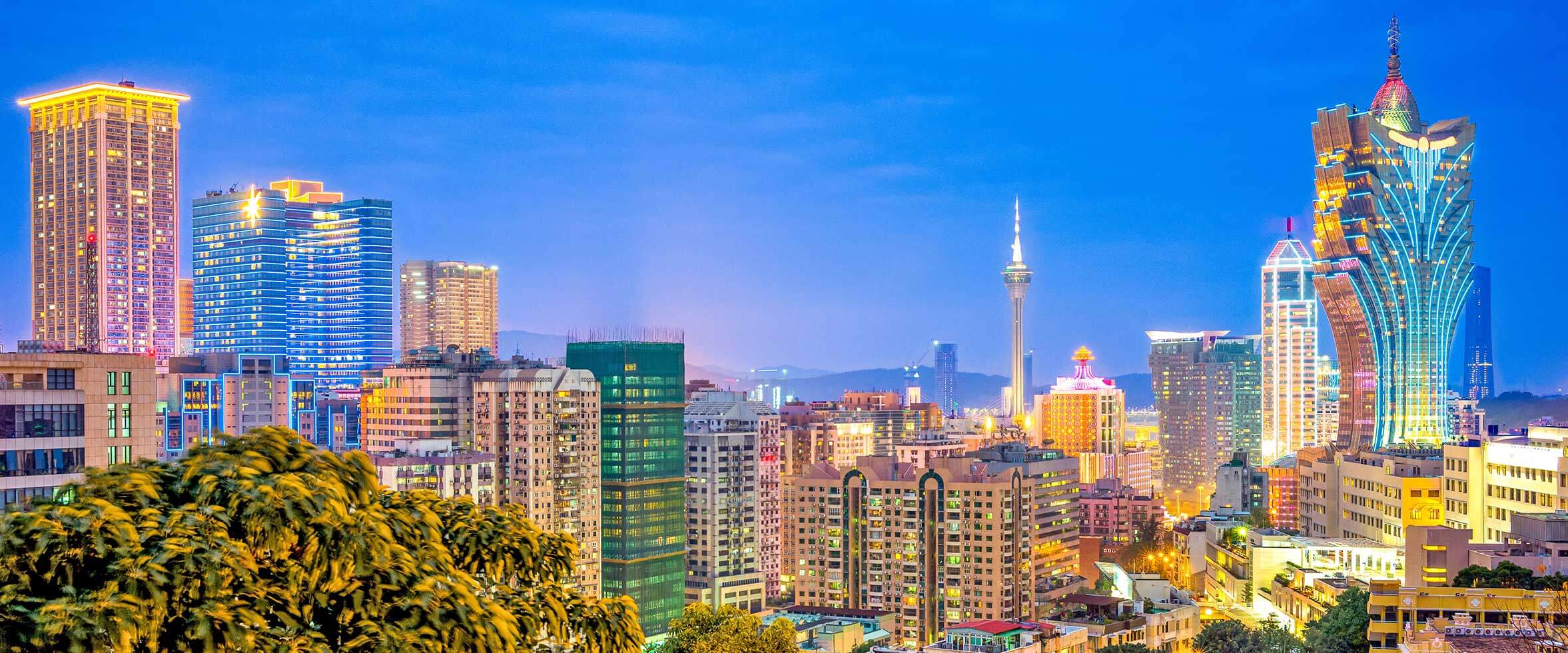Within 20 years, Southeast China's Macau has cemented itself as the most popular land-based casino 'retreat' on the planet. by a long shot. Think seven times larger than Las Vegas and you'll be in the money.
Macau City
This semi-autonamous region (most have never heard of) has a legacy of international influence! As far back as the 16th century, and all the way through to the 20th century, Macau's economy sat firmly in the hands of Portuguese traders. Its port controlled regional trade until the mid-1800s, when another region, 60 kilometres east rose to prominence - courtosy of the British. It was, of course, Hong Kong.
As the decolonisation movement swept through Asia in the second half of the 20th century, Macau and Portugal agreed to a 1999 transfer of administrative control to the People's Republic of China. After 442 years of Portuguese rule, Macau was ceded to the Chinese on December 20, 1999.
As part of the transfer agreement, Macau enjoys autonomy not afforded to other Chinese regions. Largely left to administer the territory themselves, Macau is free to pursue its economic system with minimal Chinese interference through 2050.
History of Gambling in Macau
For almost 200 years it's been legal to gamble in Macau. Their Portuguese overlords authorised what was then known as "gambling houses". The first were just local operations that catered to wealthy people from the inland and sailors making port calls, but in the 1960s all that began to change.
In 1962, a group of Hong Kong and Macau businessmen created Sociedade de Turismo e Diversões de Macau. This organisation controlled gambling licenses, a mandate that it maintains to this day. In addition to regulating the market, the Sociedade de Turismo e Diversões de Macau partnered with ferry companies to provide increased transportation from Honk Kong to the casino district in Macau. By the mid-1960s, gambling already accounted for 50% of the region's economy.
The real breakthrough began in the early 2000s. With China granting economic autonomy, Macau quickly moved to liberalise their gaming industry. Established American brands like Wynn, Sands, and MGM applied for and received licenses to build new casinos in the territory.
Macau and the Future of Gambling
In the last 20 years, Macau has blown past historically dominant gambling locations like Las vegas to firmly establish itself as the premier gambling destination on the planet. With over 40 major casinos, Macau dwarfs the competition.
Two major infrastructure projects have helped fuel Macau's growth. Macau International Airport, which opened in 1995, brings over seven million visitors to Macau each year. Also, the Hong Kong–Zhuhai–Macau Bridge, a 55-kilometre long tunnel and bridge crossing, now affords a quick connection from Hong Kong to Macau via rail and automobile, shaving hours off the former land route.
The biggest threat to Macau comes from other emerging Asian markets. Places like Singapore, Australia, and the Philippines are seeing even larger growth than Macau these days. Of course, this needs to be understood in the context that those markets are small and significantly underdeveloped relative to Macau's firmly established position.
